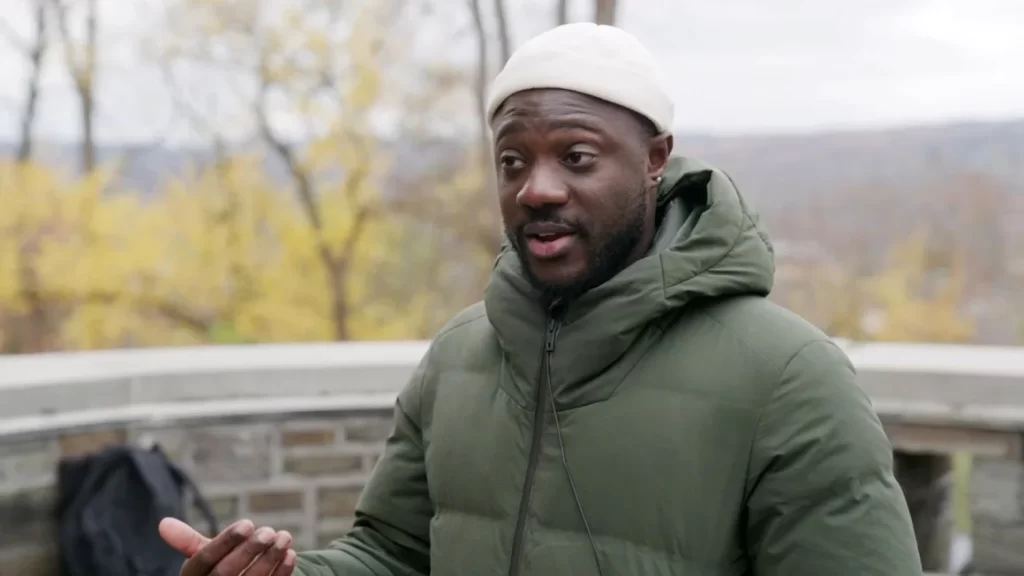A Cornell University graduate student, known for his prominent voice in pro-Palestinian protests, has been ordered to appear before Immigration and Customs Enforcement (ICE). This order follows his request for a judge to preemptively block the government from deporting him.
Momodou Taal, a doctoral candidate in Africana Studies and a dual citizen of the United Kingdom and The Gambia, believes the government is preparing to remove him as part of the Trump administration’s efforts to target what they termed anti-Semitic speech on college campuses.
In an email sent to Taal’s attorneys early Friday, a Justice Department lawyer invited Taal and his counsel to appear at the Homeland Security Investigations (HSI) office in Syracuse for the formal delivery of a Notice to Appear and for Taal to surrender to ICE custody.
A Notice to Appear is a key initial step in the formal deportation process. The email did not specify a deadline for Taal’s surrender.
“It is not yet clear what grounds for removal the government alleges exist here,” said Taal’s attorney, Eric Lee, in a court filing before federal judge Elizabeth C. Coombe, a Biden appointee.
“He lives in constant fear that he may be arrested by immigration officials or police as a result of his speech,” Taal’s attorneys stated in a lawsuit filed last weekend, asking a federal judge in New York to overturn two executive orders targeting universities and “foreign national” protesters.
The government has not yet filed a formal response to the federal complaint. CNN has reached out to the Department of Homeland Security and attorneys representing the Trump administration for comment, but has not yet received a reply.
Lee stated that he did not have time to comment further on Friday due to the rapid developments in the case.
In addition to Taal, the plaintiffs in the lawsuit include a fellow doctoral candidate and a professor at Cornell, both U.S. citizens, who claim their First Amendment rights have been suppressed by the threat of prosecution for protests against Israeli policies.
“This lawsuit is a necessary step to preserve our most fundamental constitutional protections,” wrote Abed Ayoub, national executive director of the American-Arab Anti-Discrimination Committee, which is assisting in the lawsuit. “The First Amendment guarantees the freedom of speech and expression to all persons within the United States, without exception.”
Judge Coombe did not immediately rule on the motion for a temporary restraining order to block Taal’s deportation, but ordered the government to respond to the request by 5 p.m. Saturday.
Taal’s efforts to prevent deportation come just two weeks after Columbia University graduate and pro-Palestinian protest leader Mahmoud Khalil was detained by ICE. A judge has blocked efforts to remove Khalil, marking a significant move in a series of immigration actions targeting college students and faculty.
Attorneys believe Taal is under law enforcement surveillance.
A hearing in the lawsuit challenging Trump’s executive orders is set for next Tuesday, but Taal’s attorneys say he faces imminent deportation risk because an individual believed to be with law enforcement was recently seen waiting in a vehicle outside Telluride House, a specialized academic residence where Taal previously lived. The organization that operates Telluride House clarified that Taal has not resided there since February.
A Telluride House employee confronted the individual in the vehicle, testifying, “I approached the man and informed him that this was private property. The man produced a law enforcement badge.” The individual eventually drove away after being asked to leave, according to an affidavit.
“We are particularly concerned about the possibility that if Mr. Taal is detained, he would be moved to a different jurisdiction,” wrote Lee. Following his detention in New York, Khalil was transported to an immigration detention facility in Louisiana, over a thousand miles from his attorneys.
This is not the first time Taal has faced the possibility of losing his visa. He was suspended twice by Cornell last year for alleged disruptive protest activities and was informed that his academic suspension could lead to visa revocation, forcing him to leave the United States.
Taal and the school later reached an agreement allowing him to return to classes remotely in the spring semester, according to his lawsuit.
He has also faced criticism for online comments made following the Hamas attack on Israel on October 7, 2023, where he tweeted, “colonized peoples have the right to resist by any means necessary” and “Glory to the resistance!”
Taal dismissed complaints about his statements in a November 2023 interview with CNN, stating he was tired of being constantly asked to condemn Hamas.
“I think it’s quite racist, Islamophobic that before I’m allowed to have a view on genocide, I have to condemn a terrorist organization,” Taal said.
“I can say clearly categorically I abhor the killing of all civilians no matter where they are and who does it,” he added.
Taal is among the pro-Palestinian activists flagged for potential deportation by Betar US, a self-described Zionist advocacy group and the only Jewish organization classified as an extremist group by the Anti-Defamation League.
“We submitted the names of hundreds of protestors and activists to the Trump administration/DHS urging ICE to deport them under the executive orders,” Betar US spokesperson Daniel Levy told CNN Thursday.
“Those who come to the United States on visas or as naturalized citizens don’t have the right to come participate in Hamas events or support terrorist organizations,” he said.
Despite the controversy surrounding Taal’s protests, hundreds of supporters attended an impromptu rally on the Cornell campus Thursday, CNN affiliate WBNG reported.
“Now, people are noticing. They want to come out,” Alaa Farghli, who testified he saw the suspected law enforcement vehicle outside Taal’s residence, told WBNG. “They don’t want to lose the civil liberties that they hold onto dearly.”



